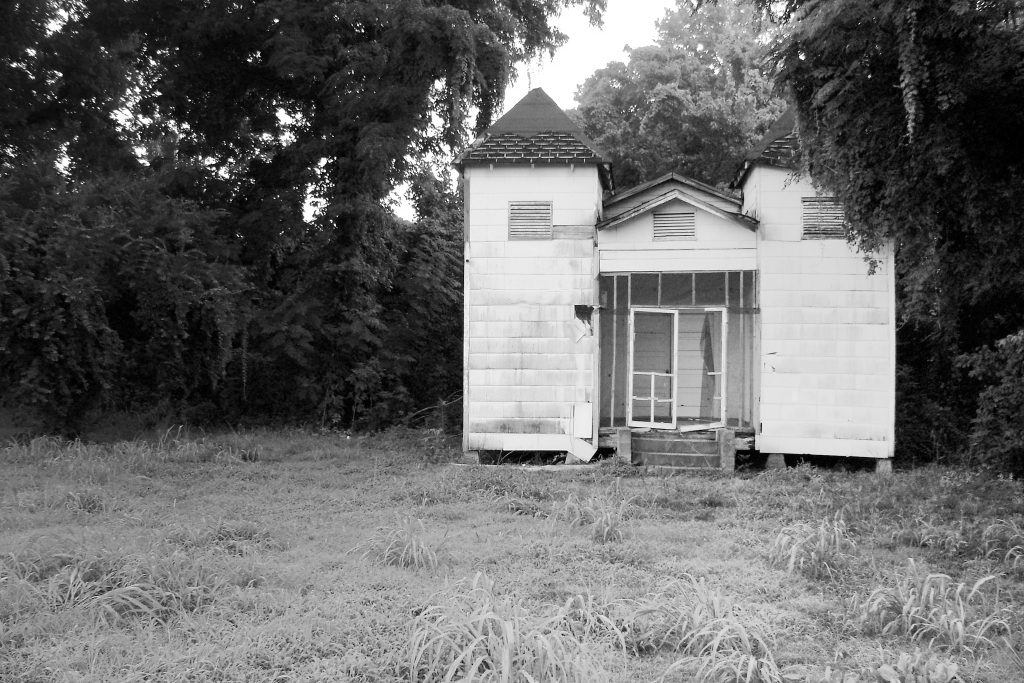 How do you know whether an arbitration provision in a contract applies? The easy answer: read the contract. If you are a member of a company that provides services to you, such as financing your small business needs, you must be sure to closely read any and all documentation relating to the services provided and what you can do if you are dissatisfied with the company’s work. Companies will often include an arbitration and mediation clause in their contracts with individual members. This means that instead of suing the company in a court of law, the dispute would first have to be arbitrated by an independent third party and an attempt at mediation would have to be made. In Louisiana, companies frequently create operating agreements that function as contracts between owners and members. These operating agreements use a lot of boiler plate language that is ultimately enforced. In fact, Louisiana law favors arbitration. See La. R.S. 9:4201; see also v. Auction Mgmt. Corp., 908 So.2d 1, 18 (La. 2005).
How do you know whether an arbitration provision in a contract applies? The easy answer: read the contract. If you are a member of a company that provides services to you, such as financing your small business needs, you must be sure to closely read any and all documentation relating to the services provided and what you can do if you are dissatisfied with the company’s work. Companies will often include an arbitration and mediation clause in their contracts with individual members. This means that instead of suing the company in a court of law, the dispute would first have to be arbitrated by an independent third party and an attempt at mediation would have to be made. In Louisiana, companies frequently create operating agreements that function as contracts between owners and members. These operating agreements use a lot of boiler plate language that is ultimately enforced. In fact, Louisiana law favors arbitration. See La. R.S. 9:4201; see also v. Auction Mgmt. Corp., 908 So.2d 1, 18 (La. 2005).
In May 2014, eleven members of a small business financing company, North Louisiana Bidco, LLC (NLB), filed a lawsuit to enforce their rights to examine NLB’s financial and other records. The eleven members became concerned when NLB was sued by various clients and incurred a bad debt expense of $6 million, which showed on the company’s 2013 financial statements. In response, NLB raised the exception of prematurity. NLB argued that the company’s operating agreement required the members of the company to mediate their disputes amongst themselves and if mediation failed, to submit disputes for arbitration. The members that were suing the company in this instance opposed the prematurity argument and asserted that this dispute was not one “among members” but instead was between the body of the membership itself and the management of the company. The Trial Court upheld the prematurity exception. It held that this was indeed a dispute between members and the mediation and arbitration clause applied.
When the members of NLB appealed the Trial Court’s decision they argued that this dispute was a demand by the members of the company against the company itself. The members were attempting to enforce their own rights to view the company’s records rather than trying to enforce any rights against the other members. The Second Circuit Court of Appeal agreed with the eleven members stating that this was not a dispute between members. Therefore, in the absence of such a dispute between members, the arbitration clause could not be enforced. In addition, the Court of Appeal pointed out that for the arbitration clause to be triggered, the action must have been a dispute arising among members relating to the operating agreement. The operating agreement at issue here made it clear that members had the right to inspect the company’s books and records and no party disputed this fact. Because there was no dispute relating to the agreement and because the dispute was ultimately not between members, the Court of Appeal held that the arbitration clause did not apply and the members would be allowed to bring a lawsuit against the company.
 Louisiana Personal Injury Lawyer Blog
Louisiana Personal Injury Lawyer Blog


 No one likes to deal with insurance matters. Shopping for insurance and understanding the terms of an insurance policy can be complex. Most people are happy to just pay their monthly premiums and know that they have insurance when they need it – and then hope they never need it at all. One woman learned how complex insurance matters can be when she was injured in July of 2012 when the Pontiac Sunfire that she was driving was involved in an auto accident in Ouachita Parish.
No one likes to deal with insurance matters. Shopping for insurance and understanding the terms of an insurance policy can be complex. Most people are happy to just pay their monthly premiums and know that they have insurance when they need it – and then hope they never need it at all. One woman learned how complex insurance matters can be when she was injured in July of 2012 when the Pontiac Sunfire that she was driving was involved in an auto accident in Ouachita Parish. If your contractor tells you a job will take a day, you might expect it to actually take a week. But, do you have to pay your contractor for time they are unable to work? Depending on the contract agreement you signed you may be liable for the costs the contractor has even when work is not going according to plan. This may be particularly true if you fail to uphold some part of the bargain. Whenever you enter a contract or feel that a contract may have been breached, it is important that you fully understand your contract. A case out of Baton Rouge in 2001 gives some insight into the necessary proof when trying to recover for contract losses.
If your contractor tells you a job will take a day, you might expect it to actually take a week. But, do you have to pay your contractor for time they are unable to work? Depending on the contract agreement you signed you may be liable for the costs the contractor has even when work is not going according to plan. This may be particularly true if you fail to uphold some part of the bargain. Whenever you enter a contract or feel that a contract may have been breached, it is important that you fully understand your contract. A case out of Baton Rouge in 2001 gives some insight into the necessary proof when trying to recover for contract losses.  If you fail to make payments on a mortgage you may lose your home, but you may also be held liable for any remaining debt after your home has been sold. If the sale of your house does not pay off the balance of what you owe, the institution owning the mortgage may come after you for a deficiency judgment. A deficiency is essentially the balance remaining on the loan after the sale of the property. For example, if a homeowner with a $100,000 mortgage defaults and the bank sells their home for $75,000, there would be a $25,000 deficiency. The owner of the debt may be able to come after a person for the deficiency.
If you fail to make payments on a mortgage you may lose your home, but you may also be held liable for any remaining debt after your home has been sold. If the sale of your house does not pay off the balance of what you owe, the institution owning the mortgage may come after you for a deficiency judgment. A deficiency is essentially the balance remaining on the loan after the sale of the property. For example, if a homeowner with a $100,000 mortgage defaults and the bank sells their home for $75,000, there would be a $25,000 deficiency. The owner of the debt may be able to come after a person for the deficiency.
 Court procedures can be confusing for many people. Cases can be even more confusing when they involve medical malpractice claims. One Louisiana case arising from injuries suffered by the plaintiff from treatment he received in March and April of 2009 reached the summary judgment stage. The complaint was originally filed with the Commissioner of Administration in accordance with the Louisiana Medical Malpractice Act.
Court procedures can be confusing for many people. Cases can be even more confusing when they involve medical malpractice claims. One Louisiana case arising from injuries suffered by the plaintiff from treatment he received in March and April of 2009 reached the summary judgment stage. The complaint was originally filed with the Commissioner of Administration in accordance with the Louisiana Medical Malpractice Act.  Employment discrimination can be damaging for both parties involved. It generally involves employee mistreatment, or a perception of such, that causes harm to the plaintiff. The employee must show that the employer treated him or her differently because of a federally protected reason, such as age, race, religion, or disability. Conversely, if the “at will” employee cannot prove he or she was fired for one of these reasons, there is no cause of action. Employment discrimination can be pursued in state court or federal court. However, when one court dismisses the action, a plaintiff cannot bring the same claim to another court. This idea is known as res judicata or claim preclusion, meaning “a matter already judged.” Having a good lawyer who knows the local and federal rules of civil procedure could save a plaintiff the time and money that comes with having their claims barred.
Employment discrimination can be damaging for both parties involved. It generally involves employee mistreatment, or a perception of such, that causes harm to the plaintiff. The employee must show that the employer treated him or her differently because of a federally protected reason, such as age, race, religion, or disability. Conversely, if the “at will” employee cannot prove he or she was fired for one of these reasons, there is no cause of action. Employment discrimination can be pursued in state court or federal court. However, when one court dismisses the action, a plaintiff cannot bring the same claim to another court. This idea is known as res judicata or claim preclusion, meaning “a matter already judged.” Having a good lawyer who knows the local and federal rules of civil procedure could save a plaintiff the time and money that comes with having their claims barred. Contractual relationships and the relative obligations and rights that come with them can be difficult to decipher. There are so many clauses, provisions, and sections buried in these agreements that understanding the importance of certain matters can get lost in translation. In order to truly comprehend the exact obligations and rights that an individual or corporation has under an agreement, it is important to have the best attorneys drafting and reviewing the agreement. After all, these clauses are what govern the course of the parties’ professional relationship.
Contractual relationships and the relative obligations and rights that come with them can be difficult to decipher. There are so many clauses, provisions, and sections buried in these agreements that understanding the importance of certain matters can get lost in translation. In order to truly comprehend the exact obligations and rights that an individual or corporation has under an agreement, it is important to have the best attorneys drafting and reviewing the agreement. After all, these clauses are what govern the course of the parties’ professional relationship. The right to jury trial is a fundamental part of our government, enshrined in its own amendment to the Constitution.
The right to jury trial is a fundamental part of our government, enshrined in its own amendment to the Constitution.  An appeal is the legal system’s way of letting the losing side have one, or two, additional chances at making their case before the final bell rings. The losing side can, and often does, argue for virtually every perceived problem or slight that occurred in the lower court proceedings. But, this is also why appeals are generally only available after the trial or lower court proceedings have ended. Of course, this being the law, there are exceptions to just about every rule. It is critical, however, to have an attorney who knows the rules and their exceptions so that they are then capable of making savvy choices on how and when to appeal.
An appeal is the legal system’s way of letting the losing side have one, or two, additional chances at making their case before the final bell rings. The losing side can, and often does, argue for virtually every perceived problem or slight that occurred in the lower court proceedings. But, this is also why appeals are generally only available after the trial or lower court proceedings have ended. Of course, this being the law, there are exceptions to just about every rule. It is critical, however, to have an attorney who knows the rules and their exceptions so that they are then capable of making savvy choices on how and when to appeal.